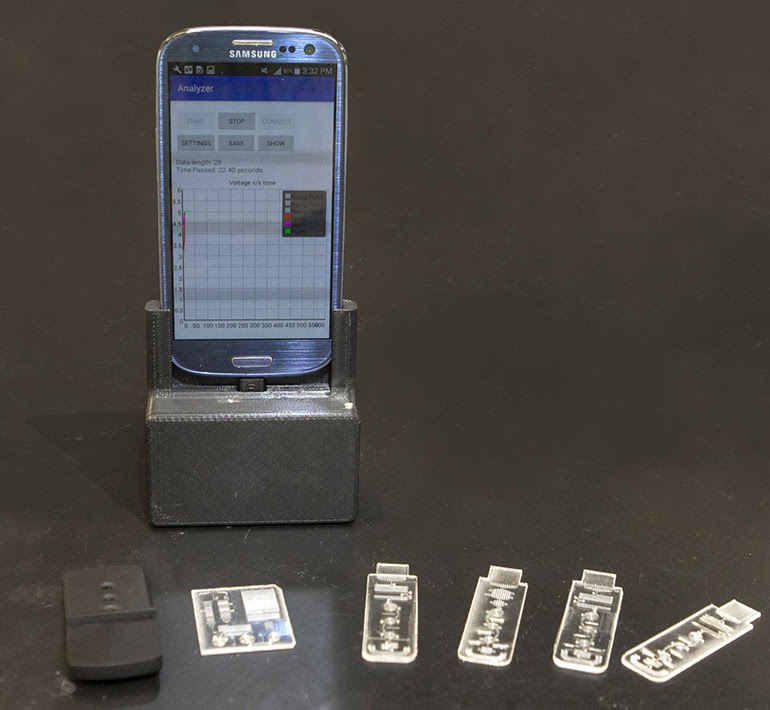Researchers at the University of Cincinnati have developed a tiny portable diagnostic device that can detect the presence of specific pathogens in a saliva sample, and relay the results to a doctor when plugged into a smartphone. The device can potentially diagnose a wide array of diseases, including malaria, HIV and Lyme disease, and could be useful for point-of-care testing and even self-testing. A custom app can relay the results of tests to one’s doctor for nearly instant diagnostic results.

The technology includes single-use plastic chips that a user places in their mouth to load a saliva sample before plugging the chip into a smartphone. The researchers claim that the device is easy to use, inexpensive, accurate and reliable.
The chip automatically performs an ELISA assay. It draws saliva into itself through capillary action, and the body fluid enters two microchannels within the device, one of which contains freeze-dried detection antibodies that bind to specific disease pathogens, and the other contains a luminescent material that indicates a positive result. The result can be read using a smartphone optical reader, which plugs into a USB-OTG port on the phone.
“The performance is comparable to laboratory tests. The cost is cheaper. And it’s user-friendly,” said Chong Ahn, a researcher involved in the study. “We wanted to make it simple so anyone could use it without training or support.”
Interestingly, in addition to helping diagnose infectious or chronic diseases, the system could also help people to monitor their mental health by measuring levels of stress hormones. Many measurements of mental health are subjective, but sending such stress hormone data to a doctor could provide objective data related to someone’s mental health. This could allow doctors to see if treatments designed to improve mental health are working and ultimately allow them to more effectively help a patient to maintain and improve their mental health.
“If you’re stressed from doing a finger prick, it’s already creating a bias in the testing of stress,” said Sthitodhi Ghosh. “That’s why we’re moving to a noninvasive method. The entire test takes place on the chip automatically. You don’t have to do anything. This is the future of personal healthcare.”
Study in Microsystems & Nanoengineering: A new microchannel capillary flow assay (MCFA) platform with lyophilized chemiluminescence reagents for a smartphone-based POCT detecting malaria
Via: University of Cincinnati

Leave a Reply